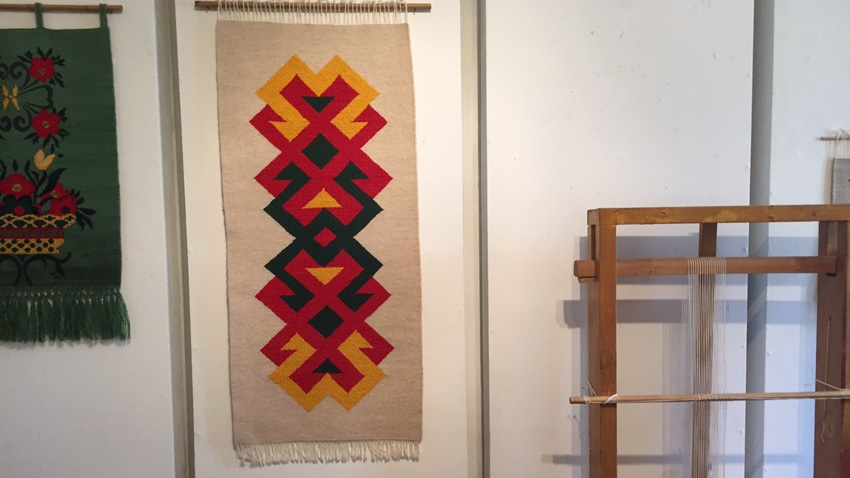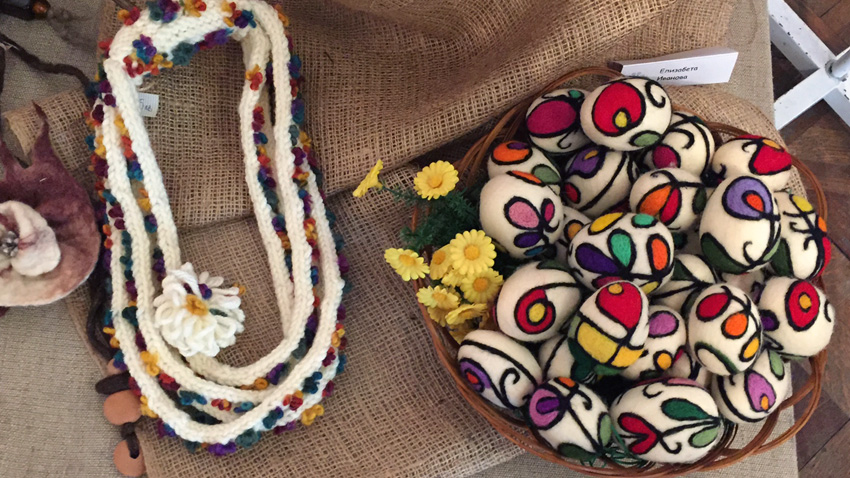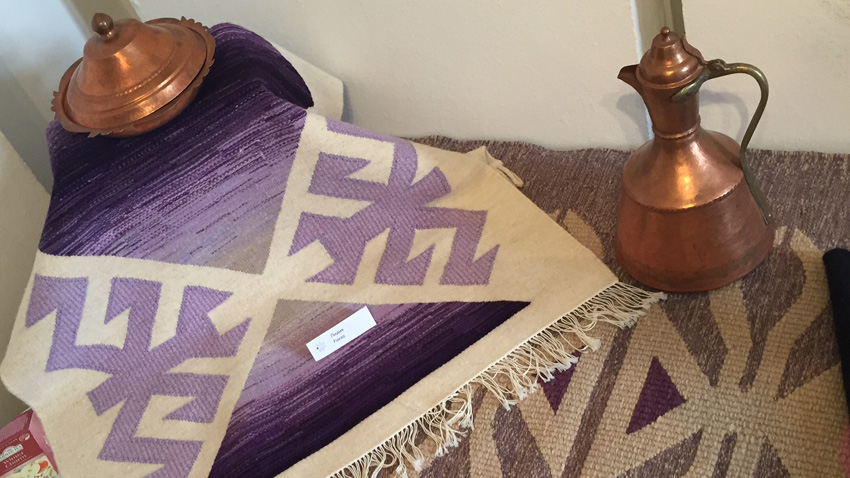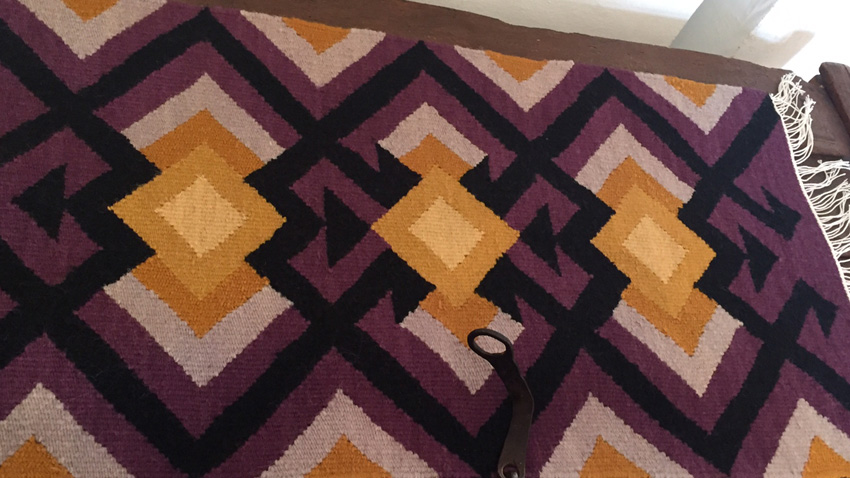Bracelets made of wrought iron, embroidered shirts, colourful aprons, beautiful braiding… The magic of colours brings a smile to the faces of anyone entering the National Ethnographic Museum. Until 20 April the premises will be an arts and handicrafts workshop bringing together master craftsmen from Sofia. Visitors will be able to watch different demonstrations -how to make embroidery, braiding, lace, jewellery, copper utensils, how to use a vertical loom - they will see the exquisite objects made and decide whether they want to buy any of them.

Several generations of master craftsmen are taking part in the exhibition and the various workshops. They are all highly skilled, but also smooth-tongued and ever willing to tell visitors more and more stories of handicrafts and tradition. What are the secrets of weaving - here is the answer from Lydia Raeva, member of the Society of Master Craftsmen of Traditional Handicrafts in Sofia:
“I come from a family of applied artists. My father and my weaving tutor are among the founders of our society. I myself use a vertical loom. I have been weaving for 33 years and still love it. It takes patience, time and love. As to the technique, the vertical loom resembles the horizontal loom, but the vertical version is thought to be less artistic. Weaving using a vertical loom takes just one hand but all sorts of figures can be made. In Bulgaria there are two principal trends - the Chiprovtsi and the Kotel school of carpet making. I myself am of the Chiprovtsi school. I use hand-drawn patterns. Last year UNESCO put the Chiprovtsi carpets on its List of Intangible Cultural Heritage and that boosted foreigners' interest in Bulgarian handicrafts.”

Lydia has taken part in numerous exhibitions and festivals and has tutored several apprentices. She says she is glad to see interest in handicrafts revive in recent years - especially in weaving Chiprovtsi carpets.
People who come to the National Ethnographic Museum are full of questions - about the symbols, the colours, the way different objects are made and usually choose to buy something. For master craftsmen this is a rare opportunity to demonstrate their skills and the fruits of their labour. Unfortunately, craftsmen in Sofia do not have any facility or premises where they can display their wares. And that deprives them of a steady income, but it also deprives tourists of an opportunity to buy authentic, hand-crafted traditional works. Is it possible for someone practicing this form of art to earn a living?

“Actually, it is rather difficult to make enough money to live on", Lydia Raeva explains. "That is the reason why some of the craftsmen hold another job as well. The truth is that to devote yourself entirely to any craft, you must be able to afford to do so. You must have a studio, take part in different events but the participation fees are significant. But if the will is there, if you are a skilled craftsman then you could make money as well. It seems to me that in Bulgaria manual work is underrated and underpaid. Nonetheless, I think that we have sufficient contacts with the world, with people who appreciate our work. They come, they see our work, we learn from one another.”
Perhaps Lydia is right and we should start appreciating manual labour and the artistic skill of Bulgaria's craftsmen as a national treasure instead of taking it for granted.

English version: Milena Daynova
Photos: Yoan KolevThe project “Pseudonature” of Bulgarian architect Yasen Markov will represent Bulgaria at the Venice Architecture Biennale 2025 . The project has collected 61 out of 70 points, said architect Vladimir Milkov, chairman of the jury. The 19th..
Bulgaria participates in the exhibition "Art and Diplomacy", which was opened in a gallery on Broadway, with two canvases, the Bulgarian Consulate General in New York announced on Facebook. The exhibition is organized by the Society..
The truth is a blessing for those who are ready to go to the end. These words belong to author and screenwriter Svoboda Bachvarova, whose 100th birthday is celebrated on January 11. According to her, cynicism is the biggest blow to humanity. Fired..
Professor Georgi Djulgerov is the only Bulgarian filmmaker who joins the names of world cinema, winners of the FIPRESCI Platinium A ward. In 2025,..
Bulgarian violinist Iva Hölzl-Nikolova premiered "Hungarian Melodies" by Wilhelm Ernst for Bulgaria. The concert on February 19 was her third appearance..

+359 2 9336 661
